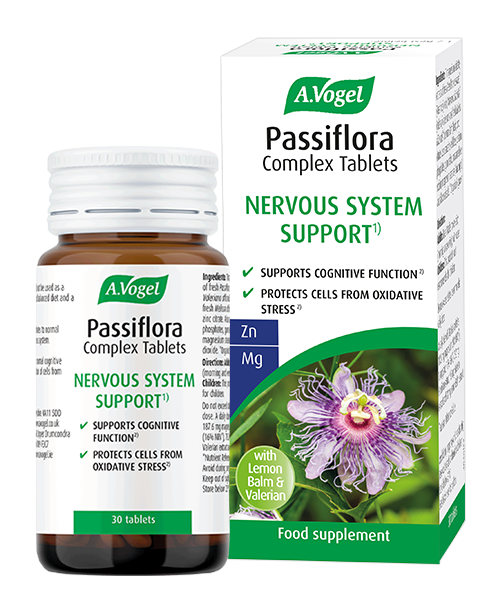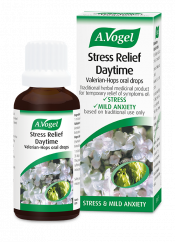How to stop a panic attack
There are techniques you can employ at the first sign of a panic attack to prevent it from escalating, from breathing slower to practicing mindfulness. Whilst you can use these techniques at the time to try and regain control, supporting yourself with diet and lifestyle tips, could also help prevent the likelihood of reoccurrence.
How to deal with panic attacks
Getting a panic attack under control quickly can help prevent it from escalating and getting out of control. You can help do this with my following tips:
1. Breathe slowly
Once your breathing becomes too fast it can be difficult to manage and this is when it helps to consciously take control.
Close your eyes, breathe in as deeply as you can, counting slowly to 3 (as in 3 seconds) and then breathe out to a count of between 5 and 8. Do this as slowly as possible. Pursing your lips will make this easier to do. Holding your hands to your stomach can also help you control your breathing and make you more aware of how rapid your breaths are.
Breathing out, in particular, helps to initiate the parasympathetic branch of your nervous system and switches you into a more calming state – your 'rest and digest' mode.
Does breathing into a paper bag really work?
If you are unable to slow your breathing and begin to hyperventilate (taking shallow and very quick breaths) then breathing into a paper bag, or cupping your hands over your nose and mouth and breathing, could help.
When you hyperventilate, the level of carbon dioxide in your blood goes down, affecting the function of your muscles and nerves. This gives rise to the symptoms of tingling and muscle cramps. Breathing into a bag helps to increase the amount of carbon dioxide you take in and helps bring levels in your blood back up to normal.
2. Relax your muscles
When you are able to control your breathing, try focussing attention elsewhere, perhaps towards your muscles. Concentrate first on your neck and shoulders, turning your head from side to side to stretch your muscles. Next, rotate both shoulders. These steps can be taken discreetly if you do not want those around you to know that you are suffering a panic attack.
Fluctuating between tensing and then relaxing your muscles can also be a useful tactic if need be. This also helps to give you some focus, even marching gently on the spot can be helpful too.
Whilst more strenuous exercise isn't always the main priority at the time, this can be a useful stress reliever more general, as an all-round way to support your system and hopefully help reduce the instances of panic attacks going forward.
3. Practice Mindfulness
Mindfulness has had lots of attention in recent times and can often help when it comes to getting panic attacks under control too. Mindfulness helps to bring you back to the present, allows you to regain some focus and helps prevent you from losing control.
In some cases visualisation works well – transporting you to 'your happy place' for example, or for others, really engaging on the here and now, regardless of where that is, can work well. The 5,4,3,2,1 technique, for one, has become popular in recent times. This involves the used focussing on 5 things they can see, 4 things you can feel, 3 things you can hear, 2 things you can smell and one thing you can taste, and before you know it, with any luck the state of panic has started to pass.
4. Try to pretend nothing is wrong
As panic attacks come about as a result of the ‘fight or flight’ instinct’; by trying to carry on as normal, you will be giving your body signals that there is no need to panic as there is no imminent danger. Although it can seem hard at the time, by convincing your body that there is nothing about to attack you, it will stop producing the stress chemicals into your bloodstream, allowing you to recover more quickly. If you expect the panic attack to end quickly it is likely to, so always think positively.
Whilst trying not to panic about the panic is often helpful at the time, acceptance is also important. It can be useful to recognise the signs of an oncoming panic attack, so you can best apply and focus all your attention on the techniques that work best for you.
5. Prepare
Whilst some of the techniques I've mentioned here can be useful at the time, it can also help to support yourself outwith the more acute symptoms. Helping to recognise some of your triggers, and/or nourishing your body can all help to support your nervous system and, in many cases, help to reduce the instance of panic attacks, although in some cases, of course, the triggers aren't always so obvious.
In some cases, highs and lows in blood sugar could directly affect our mood, and in some cases the instancy of attacks. Therefore, getting enough sleep, limiting alcohol and/or caffeine may be helpful, as well as avoiding skipping meals, and ensuring every meal and snack has a good source of protein.
Magnesium is a lovely nutrient to ensure you're getting enough of too. Magnesium is also found in comforting foods such as a square of good quality dark chocolate, and sufficient magnesium importantly helps to promote both physical and emotional calm, and many of us are at risk of not getting enough. A daily dose of 100-400mg such as with our Balance Mineral Drink can often make a welcome addition to your regime. Alternatively, find magnesium together with the calming herb Passiflora in our new Passiflora Complex tablets.
6. Know when to ask for help
If you are struggling to get panic attacks under control, and/or they are happening frequently, it's time to consider chatting to your doctor. Chatting to anyone, be it a family member or a close friend can certainly be useful, but a doctor can also help determine which medications or techniques may be most suitable to your situation.
Talking therapies such as Cognitive Behavioural Therapy are often readily available and may also be a suitable option for you.








